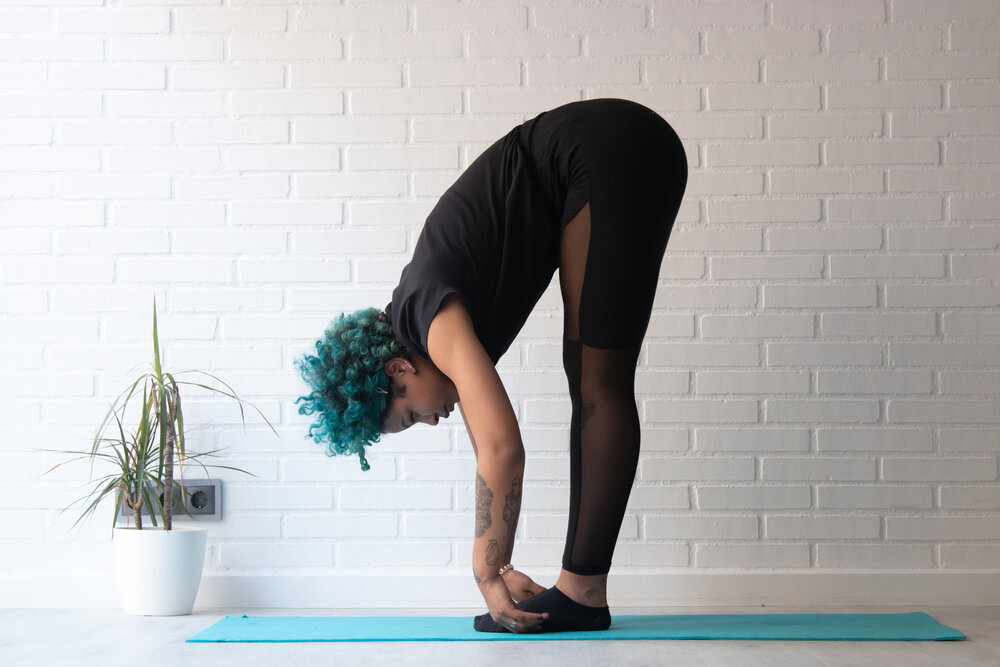YOUR HORMONES DURING A PANDEMIC, PART 1: CORTISOL
If you’re reading this, you’ve probably experienced some stress lately, and it may already be showing up as physical symptoms. This pandemic is causing much more than respiratory sickness, as it is creating fear and anxiety for people who are otherwise pretty calm. Unfortunately, the symptoms of stress will stick around long after we’ve eradicated the virus. So, here’s a general overview of how you might be affected, and what you can do about it…because wearing a tin foil hat will not help.
Effects of Cortisol
Cortisol is a type of hormone (communicator of information) that your body uses all the time to respond to all sorts of sensory information. When you work out, cortisol helps get your energy up so you start to have fun (in a torturous sort of way). When you feel like you’re being followed, cortisol kicks in a few minutes later to help you run faster and farther than you would be able to normally. Cortisol helps you think clearly to solve problems when something stressful arises…like an international pandemic.
And like all good things, there is such a thing as too much cortisol. If your body isn’t equipped to bring cortisol back down to “normal” levels after a crisis, there are physical repercussions. Below are a few examples of how chronically high cortisol can affect your body.
For an otherwise healthy person, the short-term affects of high cortisol will primarily be a weakened immune system, elevated blood sugar, mood changes, and possibly digestive symptoms. Let’s explore why these can happen.
WEAKENED IMMUNE SYSTEM
Cortisol help regulate the immune system in complicated ways, and so it can disrupt immunity quite severely. When cortisol spikes following a significant stressful event, the immune system is limited in function, which allows viruses and bacteria to invade more easily and grow more rapidly. Cortisol dysregulation can also contribute to the development of seasonal and food allergies. For a more thorough explanation of how cortisol affects immunity, check out this article.
ELEVATED BLOOD SUGAR + MOOD CHANGES
When cortisol is high, it tells your liver to put glycogen (a variant of glucose) into your blood so that you have plenty of energy. This is awesome if you forgot to eat breakfast and now you have to move a bunch of boxes at work. It’s not great if you have plenty of energy already and are just sitting around.
Chronically elevated blood sugar changes how your body makes energy. Normally, between meals your body makes energy from fat. But if your blood sugar is elevated all the time, the hormone pathway that uses fat for energy is much less efficient. This means that the longer your blood sugar is chronically elevated, the more you depend on blood sugar for energy. The results: “hanger,” mood swings, and for some people, anxiety and depression.
DIGESTIVE SYMPTOMS
Cortisol can also create changes in your digestion. If you’re already prone to digestive distress (IBS, constipation, etc.), you’re probably more sensitive than others. Folks who travel sometimes realize that they go a whole week or longer without pooping! This happens because the stress of travel can slow down the function of your lower intestines. Cortisol can also speed things up, causing intense cramping and/or diarrhea after you consume food. This can be specific (a food sensitivity) or nonspecific (symptoms follow most meals).
At this point, you’re probably wondering “what DOESN’T cortisol do?” and you’re not wrong. It’s involved in almost everything. And if you weren’t already stressed by this thing called life, high cortisol is here now, and it’s here to stay.
What you can’t do about it
I hate to break it to you, but it’s my duty as a health care professional to inform you: the majority of the solutions you’re reading about on social media and search engines won’t do diddly squat to protect you from the corona virus. And the rest are unproven, so there’s no guarantee that they’ll work. In fact, spending hours in fear looking frantically for solutions is going to create much more stress than if you just go about your daily routine.
What you can do about it
Unless your symptoms of elevated cortisol are severe, work on regulating cortisol first. But if you’re really struggling with the symptoms (severe anxiety, heart palpitations, abdominal cramps), don’t be afraid to seek professional help. Many offices offer virtual sessions so you can get relief right away.
Here’s a list of simple ways you can normalize your cortisol levels. Keep in mind that the degree of effectiveness is partially determined by your belief that it is effective as well as the consistency with which you do it.
1) TAKE A DEEP BREATH
Breath can decrease cortisol by sending signals to your brain that all is well. There are many methods to do it, but one I like is 4-7-8 breathing. Basically, you breathe in on a count of four, hold your breath for a count of seven, and exhale on a count of eight. This forces your heart rate to slow down, and sends signals to your brain that you are in a safe place, leading to reduced cortisol production. Deep breathing improves digestion and anxiety as well, and may be the best place to start if those are your primary symptoms.
Another way to deepen your breath is to move your body! Sitting or laying down doesn’t require much oxygen, so your lungs don’t operate at full capacity unless you intentionally breathe deeply. But when you dance, run, jump, crawl, and pick up heavy things, your breath naturally increases to accommodate your increased need for oxygen. It doesn’t have to be a “workout” to count! Just get moving. You can also read more about other ways to breathe and de-stress here.
2) EAT BREAKFAST
Breakfast triggers a cascade of hormone responses that continue until you go to bed. When you significantly delay or skip breakfast, cortisol continues to rise, leading to a stress-out, hungry you in the afternoon or evening. Even a small breakfast tells the body all is well.
Some people skip breakfast because they think it will help with weight loss, only to find themselves hungry after dinner with cravings for junk food. This is not a weakness in willpower, but rather a sign that your body did not receive enough food (or optimal meal timing) during the day. Eating breakfast can help change this pattern.
Not everyone is hungry in the morning, or likes "breakfast" foods, and that's ok. Lack of hunger can indicate dysfunction in leptin/ghrelin levels or low stomach acid production. Rather than focusing on a schedule, have a meal option ready-to-go at the first sign of hunger, and try to eat it before noon. If you stay consistent with this, the body can gradually shift hunger hormones and stomach acid production.
3) REST AND DIGEST
You may have noticed that a good meal with family tends to sit better with you than one eaten at your desk. This isn't just because of the quality of the food, but also the state of your body when you eat. Rather than rush through or ignore your meal, give your body time to relax and notice the fact that you’re eating. This isn't just about enjoyment, although that is certainly important! If you are isolated right now, plan a video chat to eat a meal with a friend, and you’ll both reap the benefits.
Digestive enzyme secretion stops when you are in a state of stress response. If you're always stressed, you certainly aren't absorbing all of the nutrients from your food. The act of preparing food can be part of this process, as it encourages normal stomach acid production. Eating food slowly and mindfully is a big component. And if you can, take some time after your meal to sit back and let it settle. This process can reduce your cortisol production, and is especially helpful if you’re having digestive symptoms.
4) RECOVER
Movement isn’t just for increasing your breath…it can also reduce cortisol in a different way. Gentle, purposeful movement like stretching, yoga, self-massage, and Pilates help you relax and increase your endorphin production to help you feel good. Even just one yoga practice session can cause a significant reduction in cortisol in the following hours!
5) GET OUTSIDE
Have you ever found a perfect spot outdoors, took a deep breath, and just soaked it all in? Research shows that just 20 minutes outside causes a significant reduction in cortisol. There’s a lot of reasons why this works: green is a calming color, outdoor air is generally healthier than indoor air (depending on where you live), ambient noise is calming, and most people associate the outdoors with relaxation. I love walking outside, but you can get the benefits from just sitting on your porch or a park bench. If you don’t have easy access to a non-urban outdoor area, you can mimic the effect by getting a few houseplants and creating a nature spot indoors.
For more info about how food can help you feel your best, check out my blogs 5 Foods to Improve Your Mood Now! and 5 Foods to Reduce PMS. Leave a note in the comments if you try any of these methods to reduce cortisol, and let me know how it goes!







